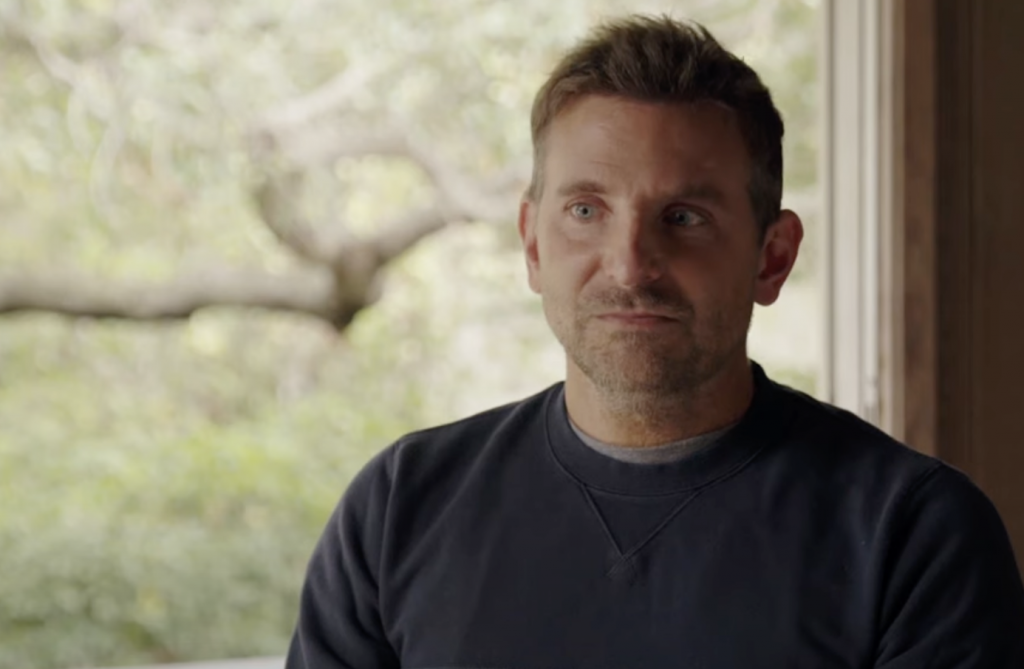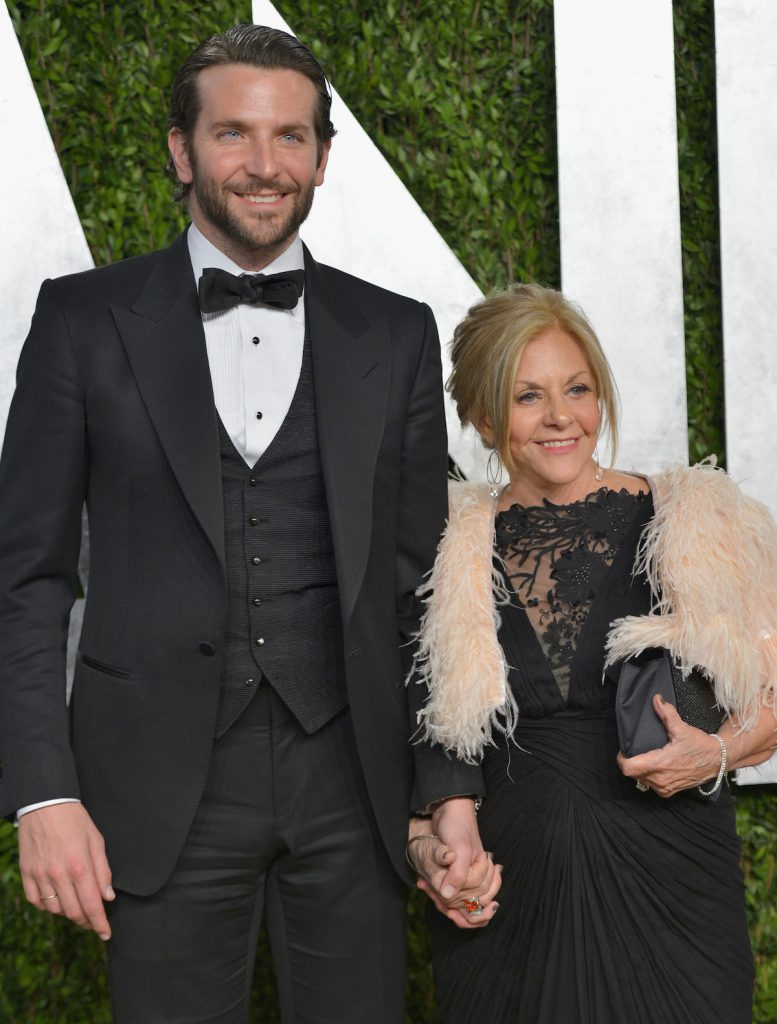On a Mission to Help Millions
- Actor Bradley Cooper, 49, is shining a light on caregiving, aiming to raise a bigger conversation about the complex experience affecting millions in a new PBS documentary set to release next year.
- In 2011, the Maestro star lost his father, Charles Cooper, to lung cancer, and recalled in a YouTube promo for Caregiving how lonely, “overwhelming” and “traumatic” it was to witness his dad’s health declining as he helped care for him.
- Sometimes the dynamic of a relationship can change when a partner or family member fills the role of a caregiver. However, it’s important to acknowledge the complexities of that role and do what you can as the person needing care or the caregiver to communicate needs on both ends.
- It’s important to understand that research shows that caregivers who take good care of themselves provide the best quality of care. Though caregiving can be a highly difficult job, it can also be very rewarding and especially meaningful for your loved one.
In 2011, the Maestro star lost his father, Charles Cooper, to lung cancer, and recalled how lonely, “overwhelming” and “traumatic” it was to witness his health declining as he helped care for him.
Read More
“The Caregiving Project will tell the story of caregiving through lived experience, expert opinions, thought leaders, practitioners, and loved ones,” a synopsis reads in the caption for the trailer.
RELATED: Patrick Dempsey’s Advice to Cancer Caregivers—Take Care of Yourself, Too
“From coping with basic medical care, housing, nutrition, and transportation to seeking resources, dealing with family dynamics, mental health, work productivity, and long-term financial planning, the solutions are complicated and multi-faceted.”
Caregiving will also include a digital campaign and national education program through libraries and various other organizations to help communities better understand the issues of caregivers and help build awareness for more resources.
Bradley Cooper’s Advocacy for Caregiving
In 2016, Cooper spoke about his father in a speech he gave at the launch of the Parker Foundation’s Parker Institute for Cancer Immunotherapy.
“I just want to tell you about my father Charles J. Cooper,” began Cooper, who described his dad’s cancer fight as “incredibly stressful.”
RELATED: Learning About Lung Cancer — Prevention and Screening
“I was in a very lucky position because I was able to put everything on hold in all aspects of my life and completely focus on taking care of him,” he told the crowd, then expressed his empathy for those in similar situations without the same privilege.
Since his dad’s passing, Cooper has welcomed his mother, Gloria Campano, to live with him at his Los Angeles home, and she has accompanied her son to numerous award shows.

“I can’t even imagine how much more difficult it is for those patients and the families that are less fortunate than I was that simply can’t afford to pay for both treatment and rent.
“My hope is that one day every person fighting cancer will receive the full support they need to maintain their quality of life from the day of diagnosis to the end of their treatment, regardless of economic or social status,” he continued.
Caregiving will air on PBS & WellBeings.org in 2025.
The Complex Emotions of Caregivers
Sometimes the dynamic of a relationship can change when a partner or family member fills the role of a caregiver. However, it’s important to acknowledge the complexities of that role and do what you can as the person needing care or the caregiver to communicate needs on both ends.
“Caregiving is the most important job in the universe because you are there through the highs and lows,” Julie Bulger, manager of patient and family-centered care at Vanderbilt-Ingram Cancer Center in Nashville, TN, previously told SurvivorNet.
“You are there to support your loved one, to manage all of the daily tasks as everything is changing in your life.”
Reducing the Risk of Caregiver Burnout
Bulger’s advice is to try to prevent or reduce the risk of caregiver burnout, or the stress, anger, fatigue and illness that can result from putting another person’s needs above your own.
“It is important to have some things that you can do outside of the focus of caring for somebody that you love with cancer,” she said.
A Guided Meditation for Caregivers
According to Bulger, doing so can look as simple as taking a walk or getting a massage, but it can also mean visiting a support group for cancer caregivers and/or seeing a therapist if you’re struggling to cope with all of the weighty responsibilities.
Caregiving Isn’t Easy, But Can Be So Rewarding and Meaningful
Regardless of how you choose to prioritize your own health, it’s important to understand that research shows that caregivers who take good care of themselves provide the best quality of care. So, by taking care of yourself, you are “helping your loved one in more ways than you know.”
Dr. Jayanthi Lea, gynecologic oncologist at UT Southwestern Medical Center, also discussed the topic in a prior conversation with SurvivorNet. “The role of the caregiver cannot be minimized. It’s so very important.”
How to Be a Better Caregiver for Your Loved One
A caregiver can be a partner, parent, child, friend, or neighbor. But it should be someone who is willing to put in the time and effort to understand the diagnosis, and follow the medical team’s recommendations.
“I encourage caregivers to come in to visits with my patients, because in that way, the caregiver is also listening to the recommendations — what should be done in between these visits, any changes in treatment plans, any toxicities [side effects] that we need to look out for, changes in dietary habits, exercise, etc.,” Dr. Lea said. “The work is extremely hard.”
RELATED: Caregiving Isn’t Easy; Recognize That You May Need Help
Caregivers should be willing to share what they’ve learned while caring for their loved one day to day, letting the doctor know about any side effects or other problems that arise. They also need to be willing to take a backseat sometimes.
“Step back a little bit and let the patient speak for themselves. Let them express what they are feeling,” Dr. Lea noted. “That is so important for the patient’s overall quality of life and wellbeing.”
Though caregiving can be a difficult job, it can be very rewarding, and especially meaningful for your loved one.
Contributing: SurvivorNet Staff
Learn more about SurvivorNet's rigorous medical review process.

